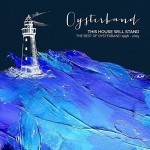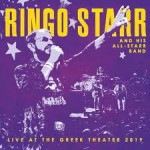Share the post "Book review: RADIO CAROLINE – The True Story Of The Boat That Rocked – Ray Clark"
Easter Sunday, 2024 Get Ready to ROCK! Radio recreates the sound of the sixties celebrating the 60th anniversary of pop radio pioneer Radio Caroline.
“The Eclectic Mix”, Sunday 31 March, 18:00 GMT
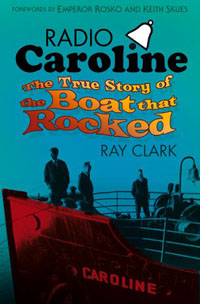
The History Press [Publication date 03.02.14] 256pp, paperback
The story is now pretty well rehearsed: Easter 1964 and a former Danish ferry dropped anchor off the Suffolk coast and started pumping out pop music to rival the BBC monopoly of the radio airwaves.
The vision of an Irishman who managed several artists and who couldn’t get their records played on conventional radio - Ronan O’Rahilly – Radio Caroline went on to capture a nation’s ears and in particular gave youth and nascent bands an outlet for their musical passion.
The station inspired a generation of future broadcasters (this writer included) and at its peak – with the original ship now operating off the Isle Of Man and the Mi Amigo taking its berth on the North Sea – Caroline may have attracted some 8 million listeners.
It would of course all unravel in August 1967 when the Marine Offences Act outlawed the pirate stations and, significantly, it was the late Tony Wedgwood-Benn who wielded the final axe as Postmaster-General; there is famous footage of him espousing his “logic” in a World Of Action TV special at the time. This doesn’t quite chime with his own credentials as a radical and free spirit, but whatever.
To coincide with Caroline’s 50th anniversary, Ray Clark has written a new book about the station from the earliest beginnings right up to recent times, where Caroline still retains the last seaborne vessel – the Ross Revenge – and a broadcasting presence via the internet.
It is a compulsive if not comprehensive trawl through the back story. Clark has been fortunate to have one-time Caroline presenter Colin Nichol on hand to supply unique interview material which has been transcribed for the book along with contemporary photographs. This is particularly unique in that some of Nichol’s subjects have now sadly passed away.
And, indeed, this is a good enough reason to publish a new history of the station as the movers and shakers are not getting any younger, with most now in their late-60s and 70s. Sadly, station founder O’Rahilly is not in the best of health and recent interviews with him were not possible for this publication. Elsewhere there is a healthy sprinkling of reminiscences to pad out the basic narrative and Clark had access to O’Rahilly’s early business partner Ian Ross.
Readers may be more familiar with the sixties version of the station as to some extent after the launch of the BBC national pop station Radio 1 in September 1967 (which was actually modelled on Caroline’s sixties rival Radio London), the pirates became less significant.
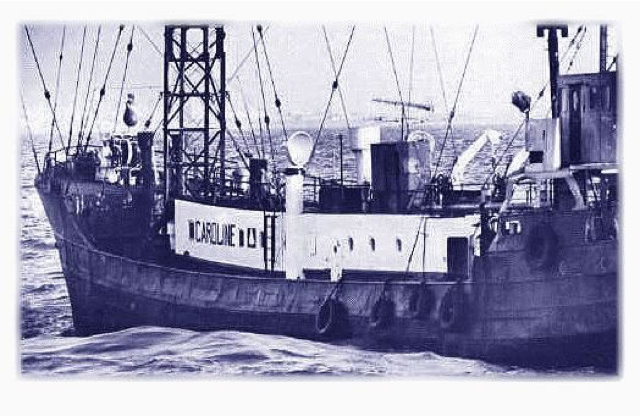
Whilst Caroline soldiered on until the Mi Amigo sank in March 1980 (and after that time on the replacement vessel Ross Revenge) it did have a chequered history during these later years as detailed in the book. Things were never quite the same again. In the late-1970s it became the self-styled “Europe’s first and only album station” and peddled ‘Loving Awareness” a sort of throwback to sixties idealism. But there were the more pressing concerns of lack of finance, food supplies, government raids and an ageing ship in need of attention.
What readers (and listeners) may not fully appreciate is that in the early days Caroline had quite a conservative musical output with some big band music jostling with the Top 20 hits. And more latterly, as the station struggled to survive after the 1967 act, there was increased use of payola (paid-for plays) such as the incessant promotion of the Major Minor label owned by one of the station’s financial backers. Those of a certain age will remember only too well ‘The Days Of Pearly Spencer’. It seems that the more enlightened DJ’s got rid of these discs via the nearest porthole.
In that respect its playlist was somewhat limited and in truth it was left to individual disc jockeys to carve out their own niche. Johnnie Walker with his love of soul music and John Peel on Radio London (trailblazing progressive and underground music) are two good examples.
Whilst the BBC was criticized by die-hard fans for providing a shameless (and inferior) copy of their beloved pirate stations, there is no doubt that the BBC’s “needle-time” restriction in the 1970s enabled a profusion of live sessions which is now an absolute treasure-trove of recorded rock history. So, for rock fans in particular, changing times was not all doom and gloom. It was the ‘beeb’ that nurtured the legendary Peel sessions, Sounds Of The 70s, and who gave us Bob Harris.
It is perhaps easy now to view Caroline through rose-tinted ear-pieces. There is no doubt that because the station opened up pop music for the masses in the sixties, and was a rebel with a cause by 1968, it typifies the spirit of adventure and anti-establishment that characterises the pirate radio stations.
But even Tony Blackburn who worked on the station in 1964-1966 has noted the lack of real organisation and structure that he was to find when he literally jumped ship to the slicker and arguably more professional Radio London.
Ray Clark’s book does much to provide a running commentary on the life and times of Caroline illustrated with some fine photographs culled from various collections including those of Dave Kindred who carefully chronicled the pirates for his newspaper, the East Essex Gazette.
There have been other books which are worth investigating (listed at the foot of this review) and the lack of a bibliography and maybe a “where are they now” section is a notable omission.
Although each chapter is annotated there is no date given for the interview material. In addition, it would have been easier to state that all interviews are the work of the author except where stated.
And whilst the book is chronological and peppered with references to some of the memorable jingles, catchphrases and on-air promotions, some clear delineation of year in the layout would have been helpful.
Sadly perhaps, us techies would also have liked more detail on the studio operation, the equipment, and its history through the years which is mostly absent. Given that Clark is a broadcaster and worked for the somewhat neutered version of the station in the 1980s the omission of this detail is surprising. Strangely, there aren’t many studio shots in the whole book. In fact there are lots of photos of the ships but not many of the personalities, many of whom are giving their story in the text.
These quibbles aside, this book takes more of the populist approach than purporting to be an erudite and analytical study. It is a more expansive update of the contemporary “first study” of Radio Caroline by John Venmore-Rowland published in 1967. As the author says in his introduction “I leave you to decide who the good guys and the bad guys were”. There are several books to provide that context but ‘Radio Caroline…The True Story’ remains a worthy chronicle and a timely reminder of both lost youth and a unique period of broadcasting history. ****
Review by David Randall
David Randall is Programme Director of Get Ready to ROCK! Radio
Further reading:
Robert Chapman, Selling the Sixties: The Pirates and Pop Music Radio (1992)
Paul Harris, When Pirates Ruled The Waves (6th ed. 2001)
Ralph C Humphries, Radio Caroline: The Pirate Years (2003)
Keith Skues, Pop Went The Pirates (Revised ed. 2009)
2024 Update:
A revised version of this book is scheduled for 2024.
Ronan O’Rahilly died in April 2020.
Featured Artist: JOSH TAERK
Since early 2020 Josh has been entertaining us with exclusive monthly live sessions,
Check out videos here: https://www.facebook.com/getreadytorockradio
Upcoming sessions:
February 15
March 8
April 12
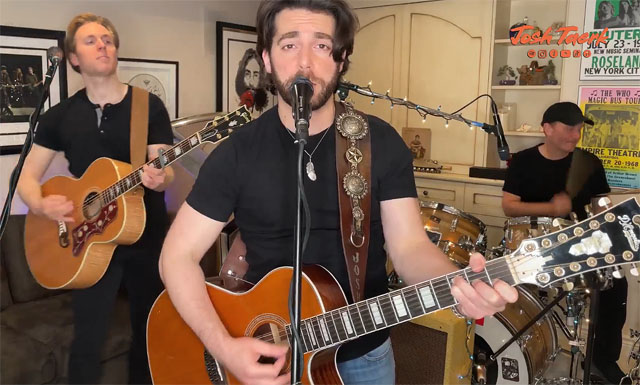
David Randall presents a weekly show on Get Ready to ROCK! Radio, Sundays at 22:00 GMT, repeated on Mondays and Fridays), when he invites listeners to ‘Assume The Position’. The show signposts forthcoming gigs and tours and latest additions at getreadytorock.com. This “Best of 2025 reviewer choices” show was first broadcast on 21 December 2025.
UK Blues Broadcaster of the Year (2020 and 2021 Finalist) Pete Feenstra presents his weekly Rock & Blues Show on Tuesday at 19:00 GMT as part of a five hour blues rock marathon “Tuesday is Bluesday at GRTR!”. The show is repeated on Wednesdays at 22:00, Fridays at 20:00). Pete’s Best of 2025 was first broadcast on 23 December 2025
How to Listen Live?
Click the programming image at the top of the page (top right of page if using desktop)
Get Ready to ROCK! Radio is also in iTunes under Internet Radio/Classic Rock
Listen in via the Tunein app and search for “Get Ready to ROCK!” and save as favourite.
More information and links at our radio website where you can listen live or listen again to shows via the presenter pages: getreadytorockradio.com
Power Plays w/c 26 January 2026
JOANNE SHAW TAYLOR Hell Or High Water (Journeyman Records)
TY FREEMAN One Way Love (indie)
GREY DAZE Monster You Adore (indie)
HOKKA Death By Cupids Arrow (Nuclear Blast Records)
PURPLE DOTS Stared At The Sun (Kycker)
SAINT AGNES Song For Mia (Spinefarm)
STREETLIGHT Shake That Feeling (Frontiers)
Featured Albums w/c 26 January 2026
09:00-12:00 The Best of 2003 – 2025 (Melodic Rock)
12:00-13:00 The Best of 2003 – 2025 (Melodic Hard Rock)
14:00-16:00 The Best of 2003 – 2025 (Singer Songwriter)
Our occasional Newsletter signposts latest additions to the website(s). We also include a selection of recent top albums, based on GRTR! reviewer ratings. The newsletter is sent out a few times a year.
If you’d like to register to receive this occasional mailing please complete the form:
If using a smartphone/tablet please tap here or re-orientate your device
(Note that this registration is separate from site registration which allows you to leave comments and receive daily emails about new content. If you wish to register for this – in addition or separately – please click or tap here – for more information – the form is at the foot of each page. Please read our privacy policy when opting-in to receive emails.
Recent (last 30 days)
Share the post "Book review: RADIO CAROLINE – The True Story Of The Boat That Rocked – Ray Clark"

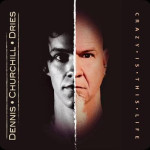



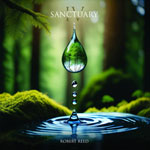

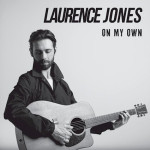
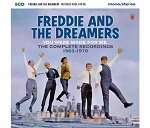


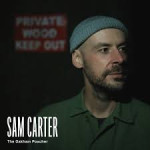


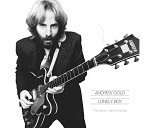
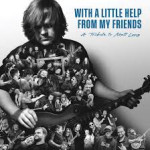

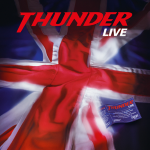

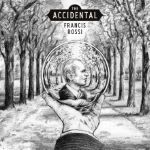
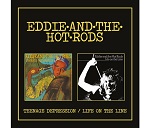

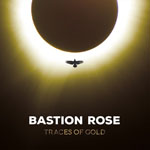
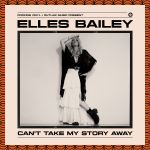


 PDF - you can delete unwanted sections
PDF - you can delete unwanted sections

















